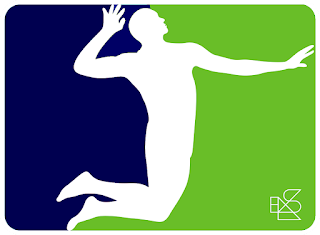What About Competition?
It seems that 'Elite' competition is becoming 'important' at younger and younger ages in an attempt to make athletes more 'ready' for competition when they are older. Entires national competitions are now devoted to athletes who are still 10 years away from reaching senior ranks. And when there is a competition, well, you may as well try to win it, right?
Actually wrong. And that's the problem. While athletes enjoy winning, coaches enjoy winning, parents enjoy winning and sponsors enjoy winning, trying to win everything along the way limits the development of athletes. Winning is a limitation. Its also great fun and satisfying and rewarding. It can be all these things.
That is not to say competition is not important, but you need to consider the purpose.
Not all opportunities are equal (or good).
As athletes develop and become more and more successful they will have more and more opportunities, usually competitions in representative teams. When this first starts happening every opportunity will seem like it is essential and can't be missed. But this isn't the case. For every opportunity there is an opportunity cost. This might be financial, might be risking injury (or limiting opportunity for rehabilitation), etc.
Good planning solves these problems. Once athletes start entering this level, their schedule needs to be planned out for every 18 months or so. There should be key goals (making a particular team or competition). Once this is in place, the decisions on what opportunities to take and what to skip become much easier.
When competition compromises the long term development of the athlete.
It is important to understand that competition won't replace the development the athlete has from their daily training environment (DTE). It will affect it. Sometimes positively, sometimes negatively. If your planning on which opportunities to take is good, then competition will add value to what the athletes is learning in their DTE. If not, then it can negatively affect the athlete.
Different competitions to learn different things.
I was fortunate to attend a presentation Bill Sweetenham gave a few years ago where he discussed his views on a number of aspects of athlete development. One of these was on competition, specifically that competition needs to be targeted for specific outcomes. "Experience is nothing if it is not Winning Experience, BUT the winning has to come from ‘equal’ opponents". But you shouldn't only attend with equal opponents because other competitions provide other learning opportunities:- ‘Equal’ competitions – Make Corrections, try to win
- ‘Below’ competitions – Make mistakes, take risks (and still win)
- ‘Above’ competition – Praise them regardless of outcome!
Real world example.
The best description of this whole process was a conversation I had with a coach a few months ago. He was a former elite athlete, now coaching in a small club.
I asked what the most difficult part of coaching was in developing young high performance athletes, he said, "balancing the development of competition specific skill with that of the skills that are required further down the track, and the compromise this makes."
I asked him how he manages it, he said, "Focus on the long term development and knows that it will negatively affect their competition results in the short term."
I asked how he manages parents in this situation, "I tell them that is what I am doing."
(Photo Credit)



Comments
Post a Comment